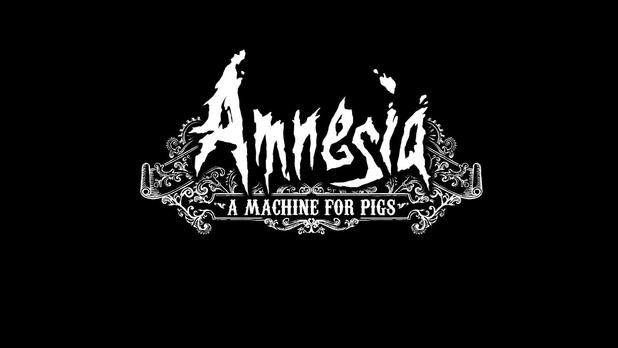“There is a spoon of medicine, I says, and it’s a silver spoon what you did get born holding, ever so painful for mummy dear but grasped so hard it was in a little screaming red fist. Later you used your spoon to dig a hole in the garden to get all the way to Mexico, and then you did eat worms with your spoon on the way to stay fat.
This spoon was the same you gave your twins, then you used it to dig a hole to their clockwork souls and you ate up their hearts like soup on the way to keep you fat.
Fat little mole, where will you dig next, I asks, you and your little silver spoon made from the silver spine of your children, and wrapped in the hair of your dearly departed?”
Although Amnesia: A Machine for Pigs has had a somewhat mixed reception since its release last September, it haunted and affected me as games rarely do. I think I even consider it to be stronger than its acclaimed predecessor, Amnesia: The Dark Descent – not from the perspective of gameplay mechanics or anything of the sort; and Descent is much scarier and more horrific in terms of actual terror. But I found Pigs to be much more moving, and darker in its far-reaching implications.

Like a glove to a hand, this game seems to have been made for me. A major part of this is the exquisitely written journal entries, spoken lines, and text throughout the game. I even loved the loading screens with their bits of mad poetry and vintage illustrations. It’s brilliantly written, which isn’t surprising considering it’s by the writer of Dear Esther, the most literarily beautiful game of them all for me. I also found the period setting more convincing than in the first game, whose language seems too modernized for the early 19th century and sometimes jarred me with its sense of incongruity.
I both saw and felt greater compassion throughout this game. Even though the protagonist Mandus is quite a monster, at no point did I stop relating to him. He is ever so much softened and humanized by his painfully apparent tenderness for his children and his torment. The occasional snatches of eerie lullaby-like music on the soundtrack interweave with this sense of grief and spectral, shattered innocence that is established from the very start. His grasping after his “darlings” is heart-rending; the entire game is saturated with this haunting, chilling, incredibly melancholy atmosphere of loss. There was also more sympathy for the “monsters.” There’s a point where you actually feel quite as sad for them as if they were lost and broken children, and this vulnerability that is shown is part of the larger complexity of the story.
It’s also just about the perfect length for me at 3-4 hours. Descent suffered from the same effect as all games that take multiple sittings: coming back to it and forgetting what has come before, and sort of losing the threads of the story while repetitive tasks such as puzzle-solving and evading monsters are monotonously completed. I actually liked its linearity and lack of expansiveness, as I really just want to move forward through the story in games.
While I feel that Descent leads you to the gates of hell and then doesn’t really show much about it, and it’s rather more build-up than fulfillment, Pigs continues to push you through the labyrinthine windings and innards of the Machine and the story; at some point I was a bit awed by how far it was taking me. Overall, I thought the game extremely beautiful and well-done. I loved its haunting sadness, its poetic vagueness, its enigma, its brutal, gut-deep darkness, and its intensity. I’d easily give it a 9/10.
“I am halved, I am bisected. I placed my feet in the stirrups of childbirth and I hung upside down and the great blade of history cut me in two like a butchered pig and my guts fell onto my children and smothered them in my love. Each half of me still living, but the guts kept falling onto my children. So we each went our separate ways and one half built a machine instead, to hold his hate in and to keep his heart beating. And the other fell into a sleep, to blunt the pain.”